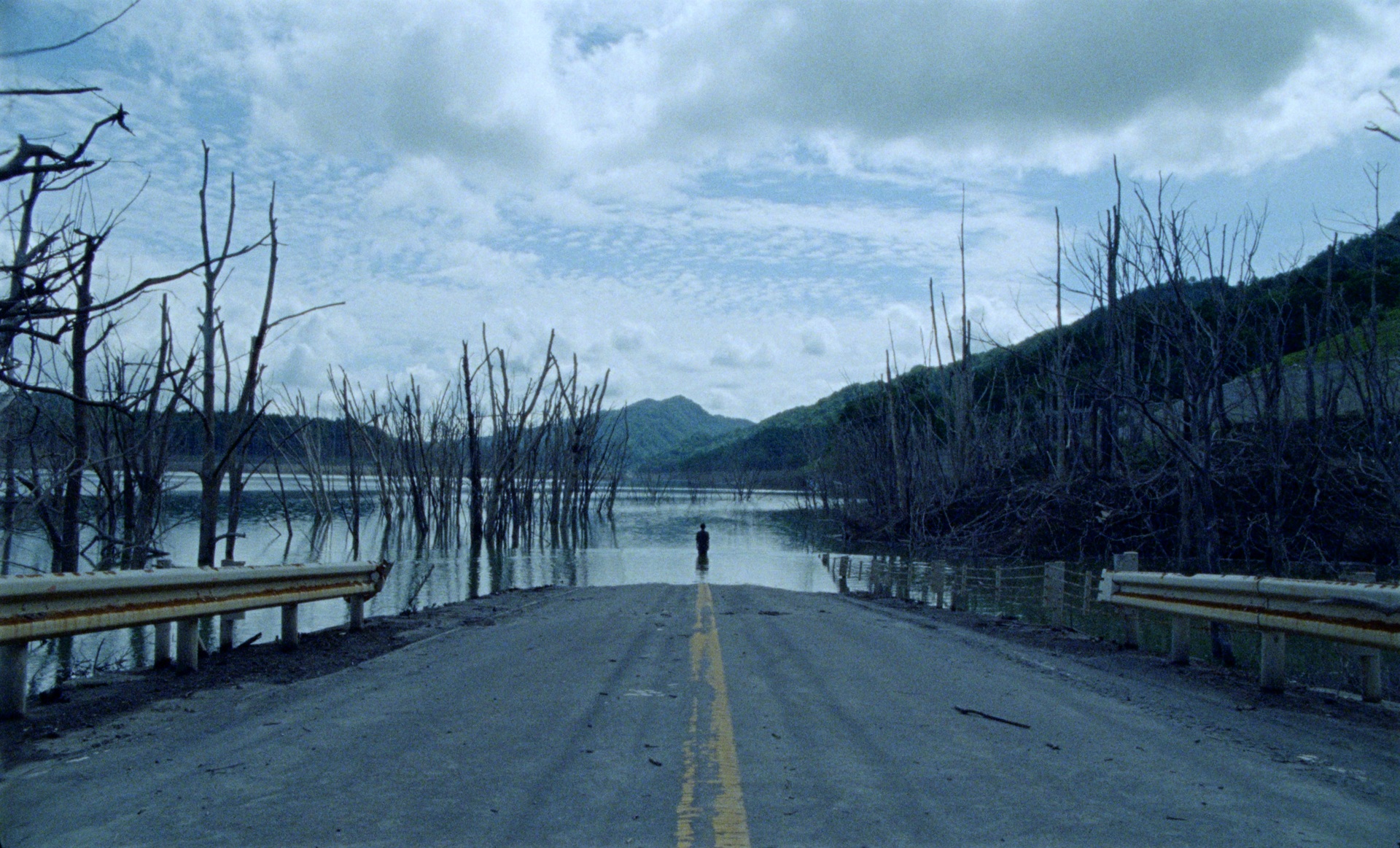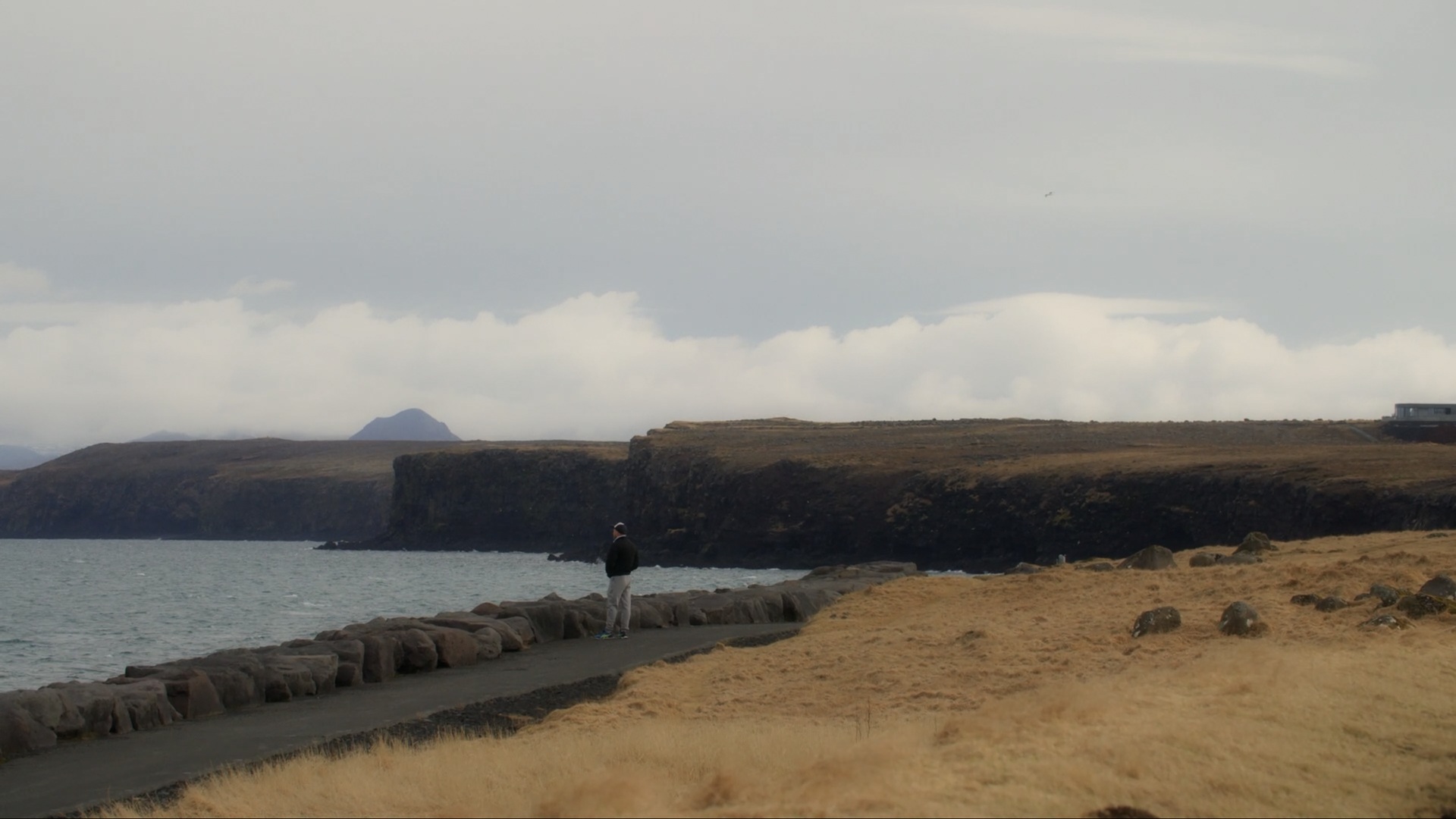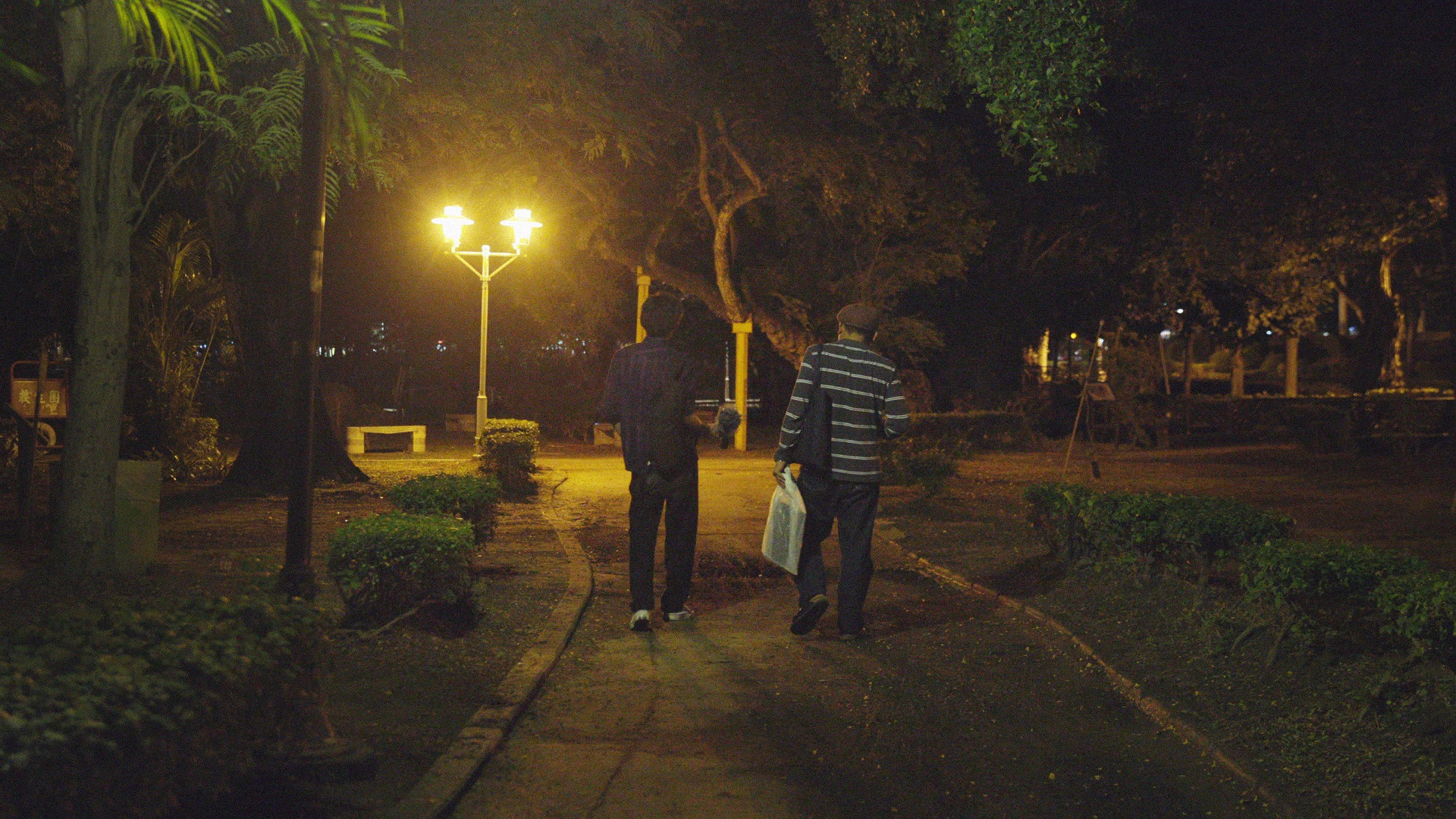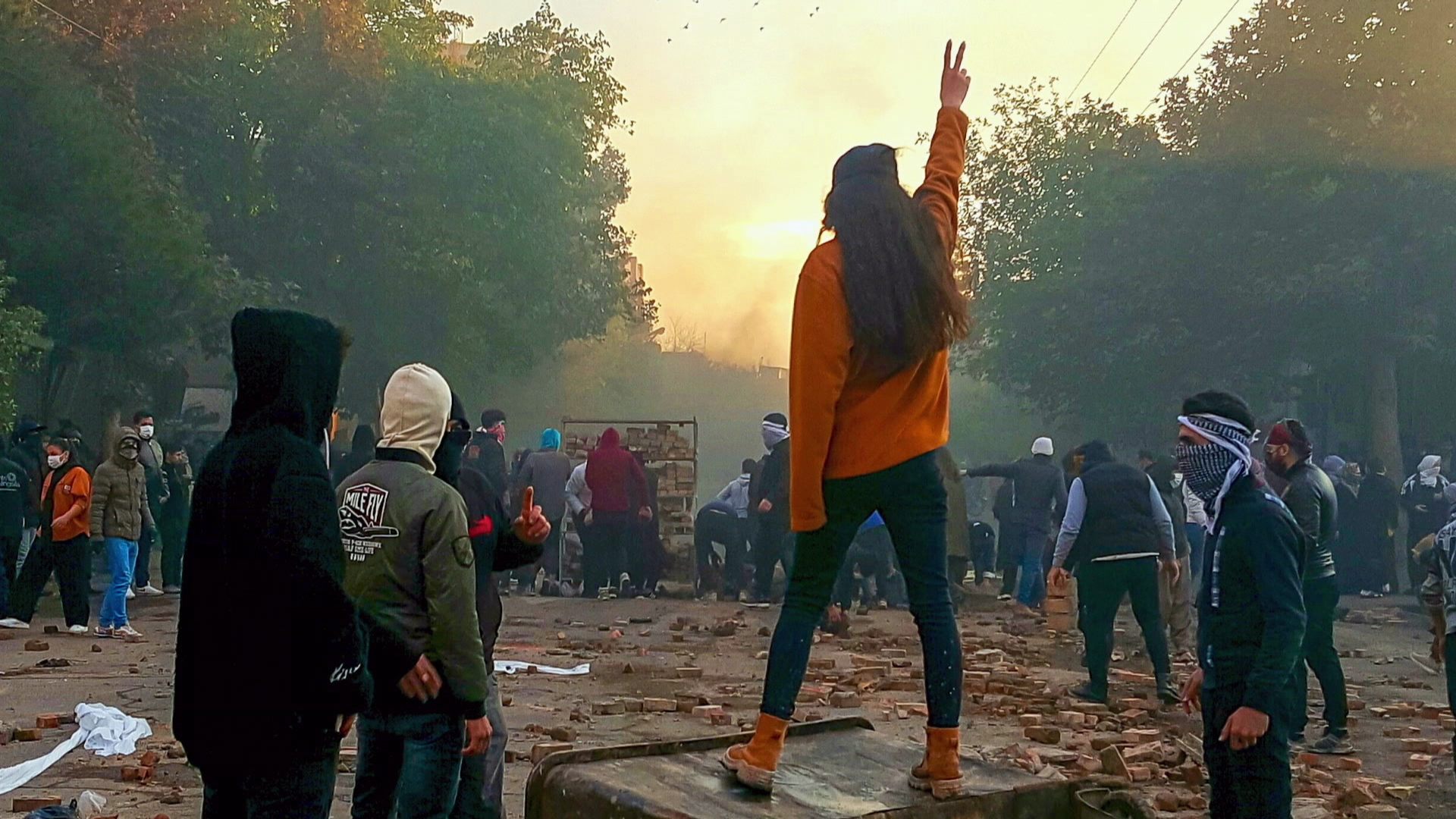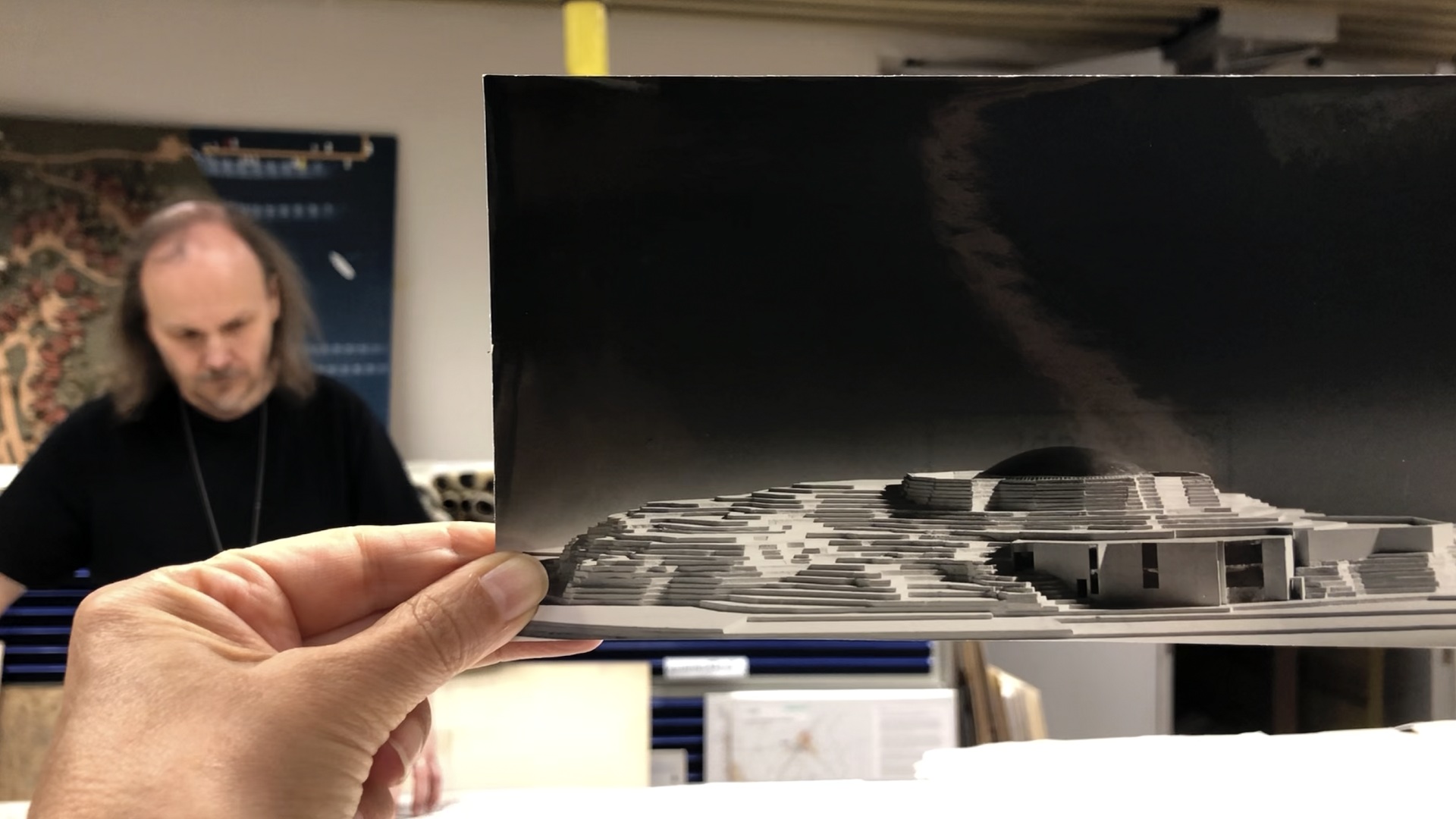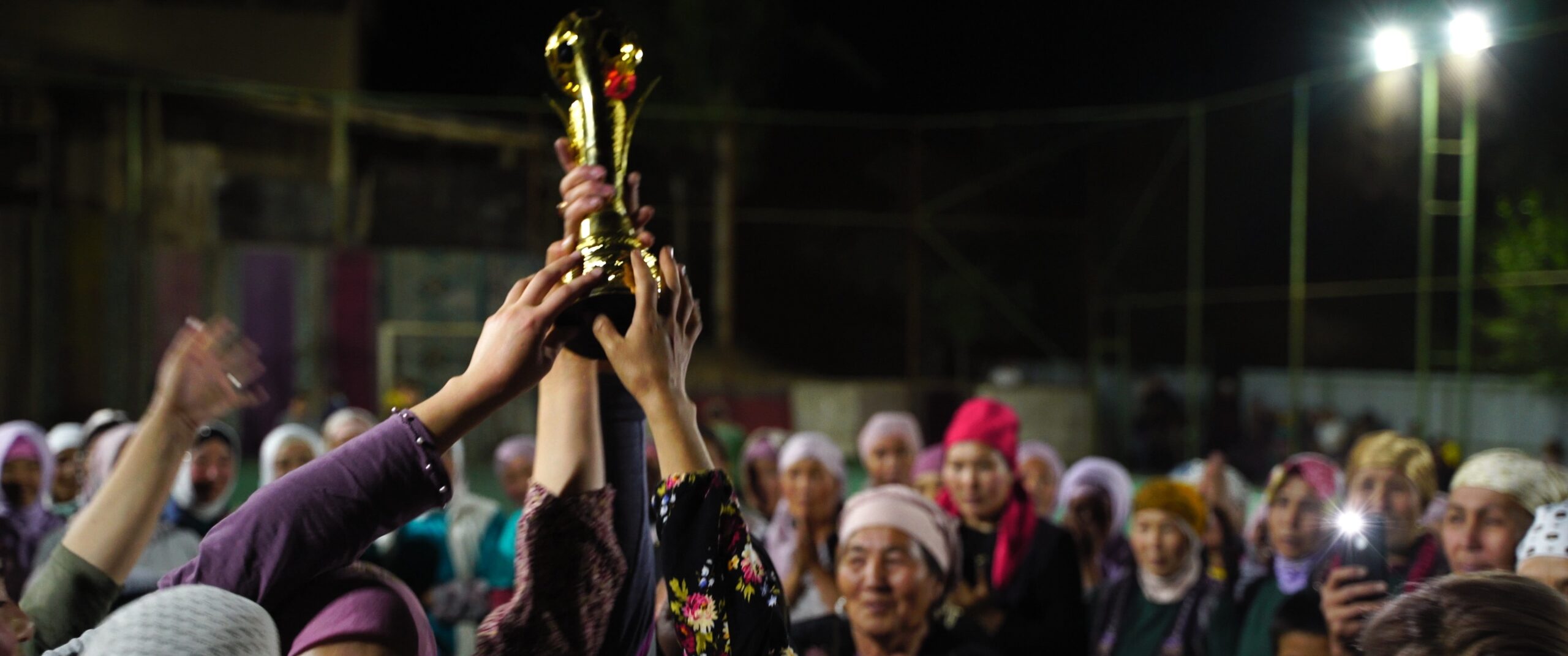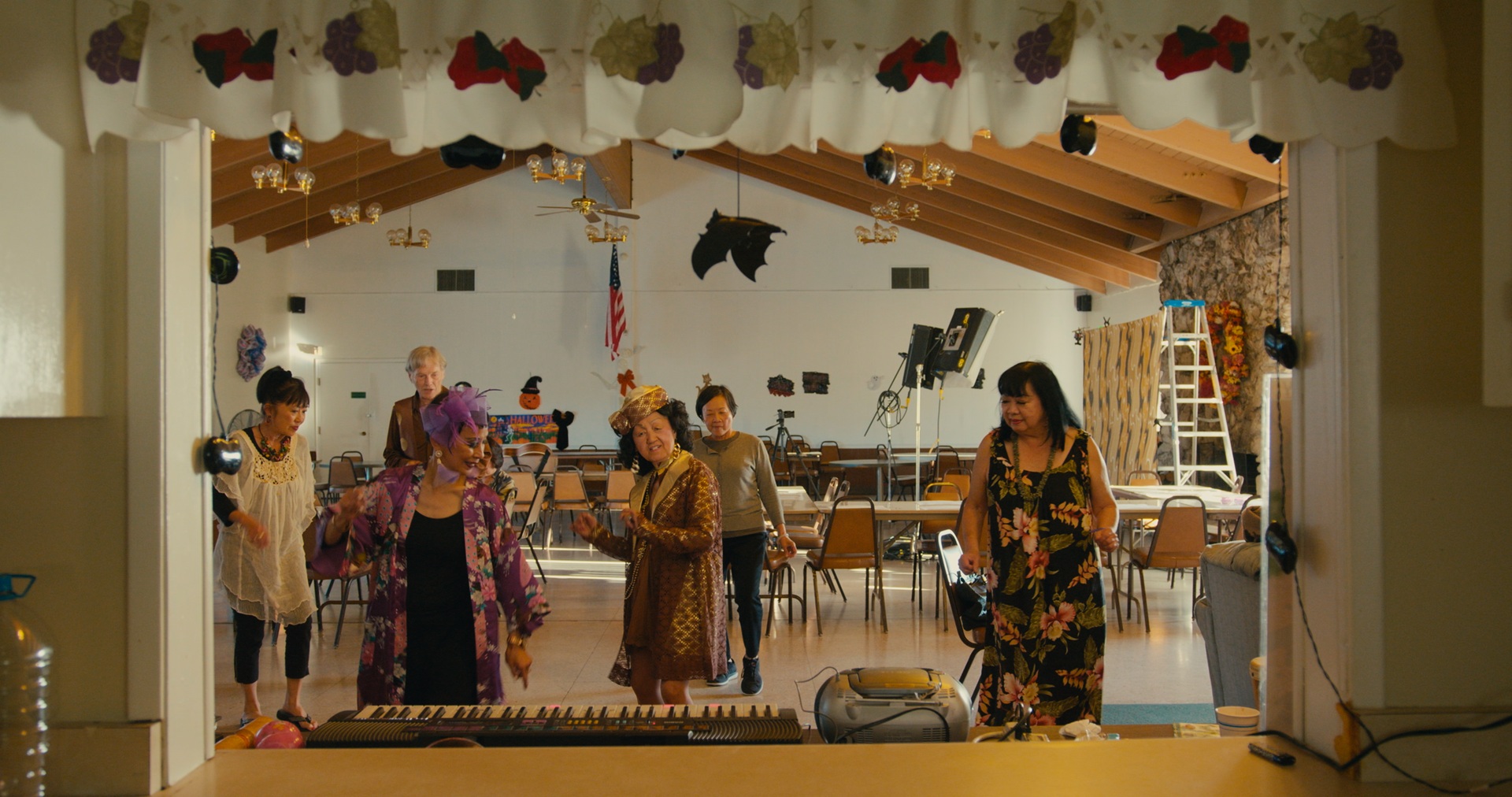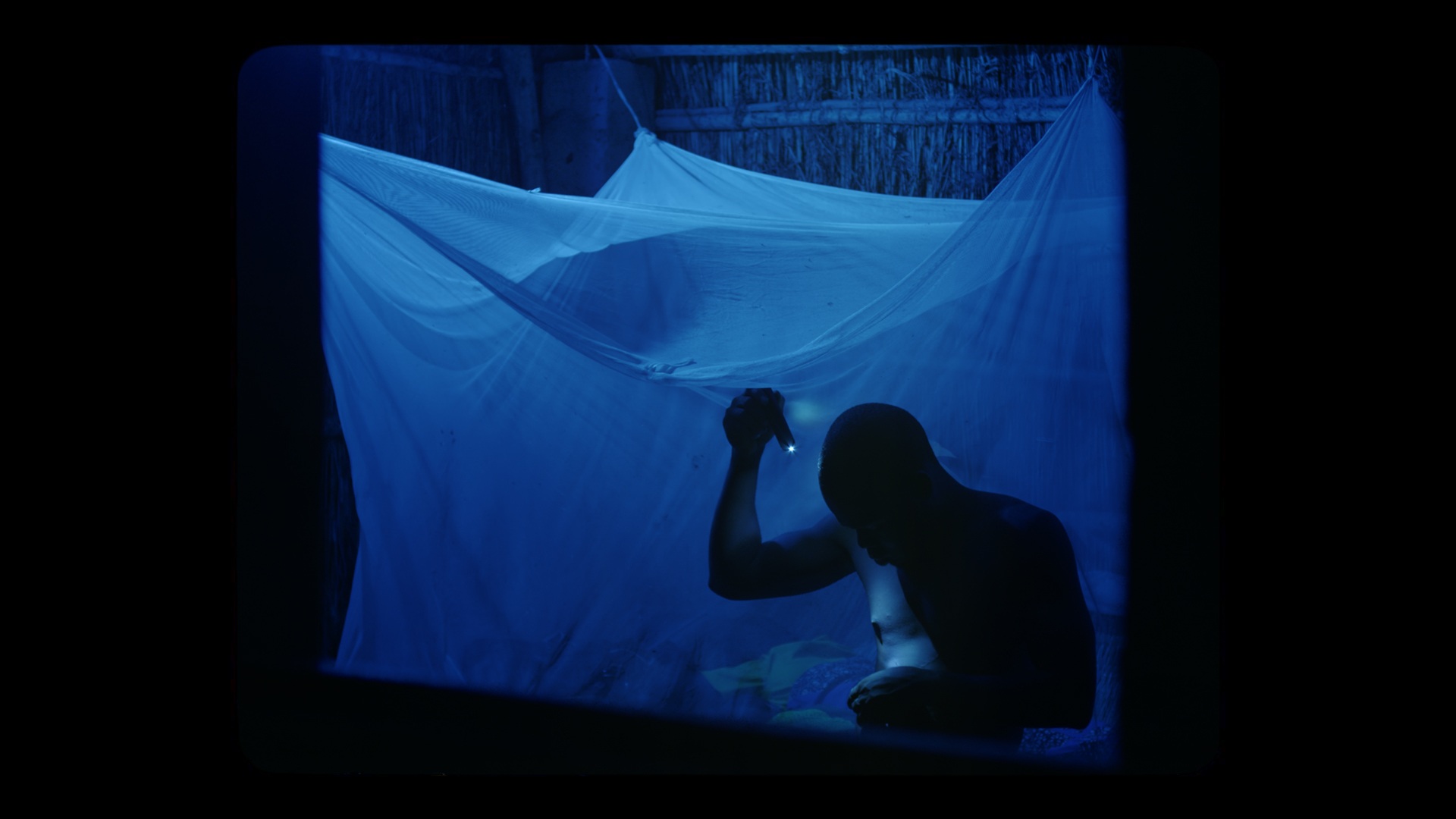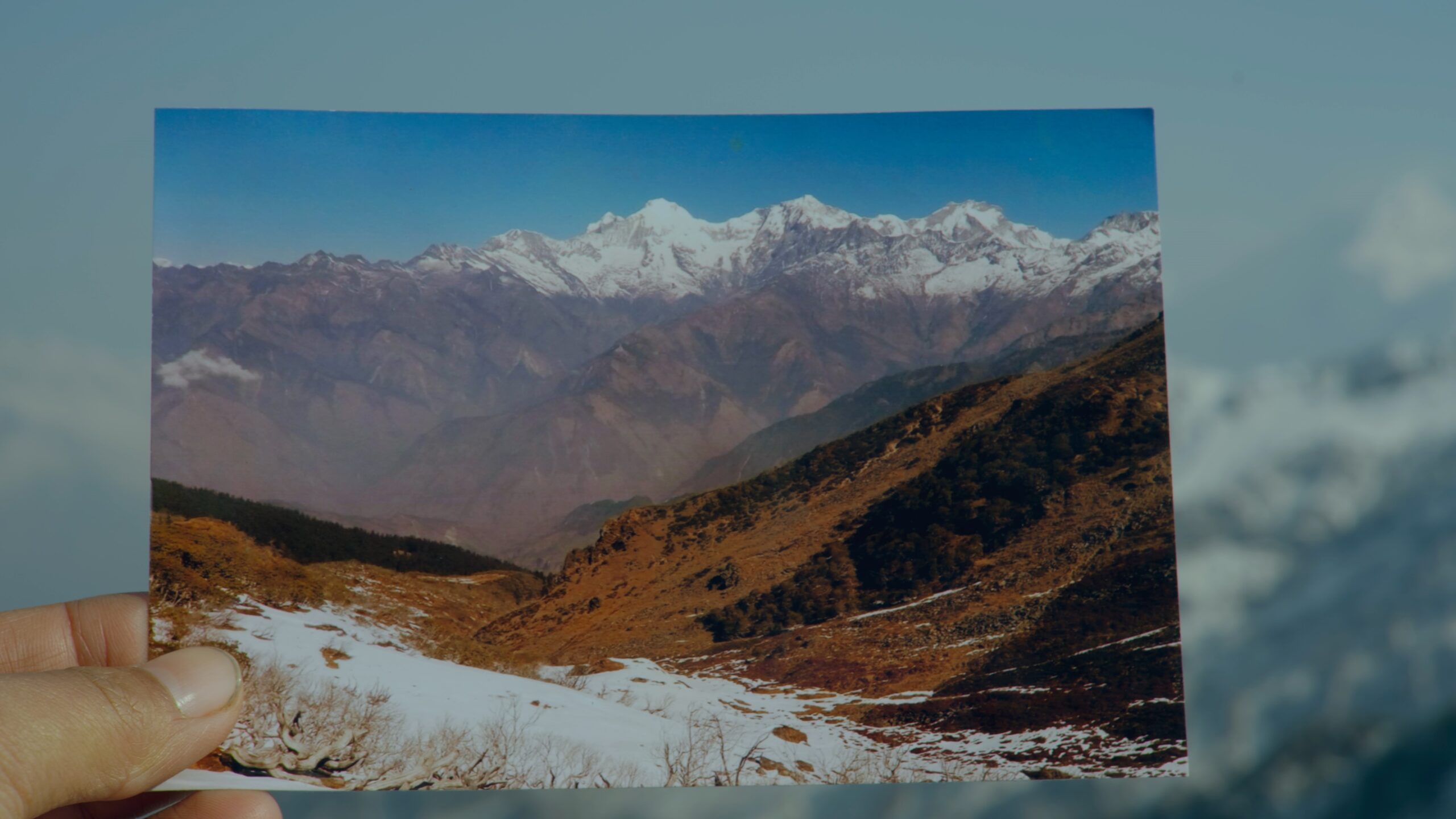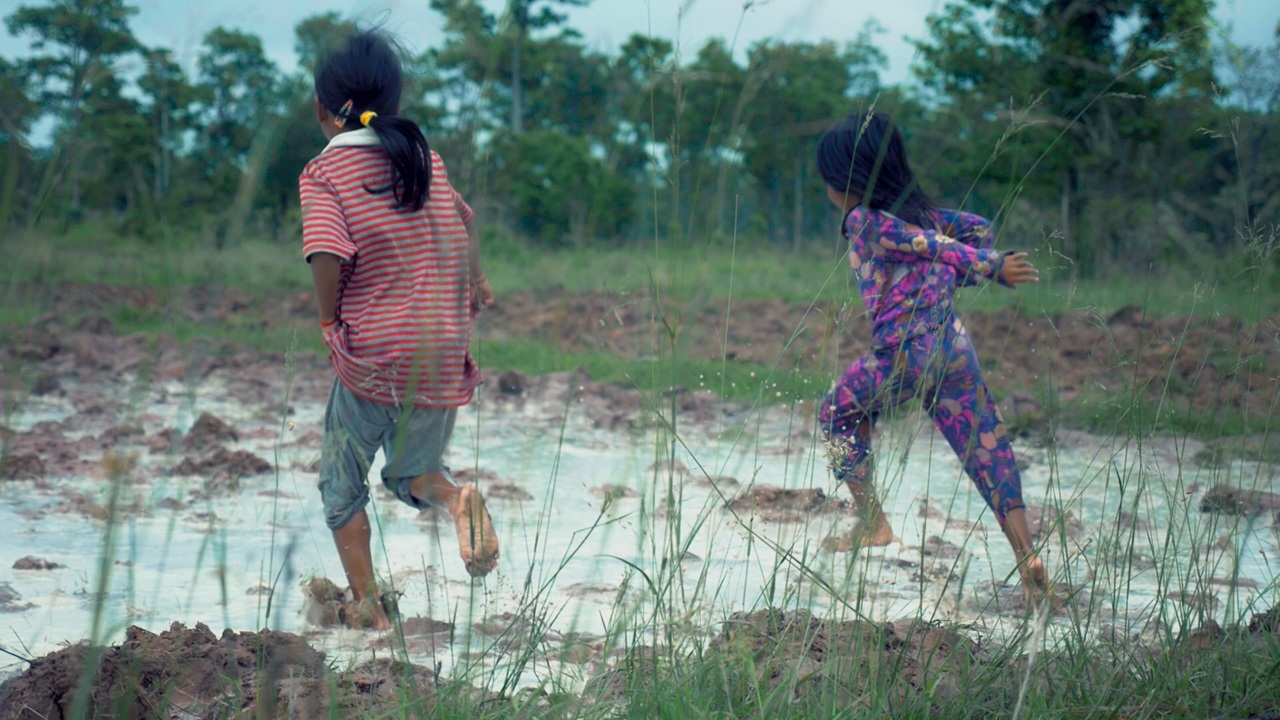
international competition programme
The Fabulous Gold Harvesting Machine
(Alfredo Pourailly de la Plaza / 2025 / 77 min / Chile, Holanda)
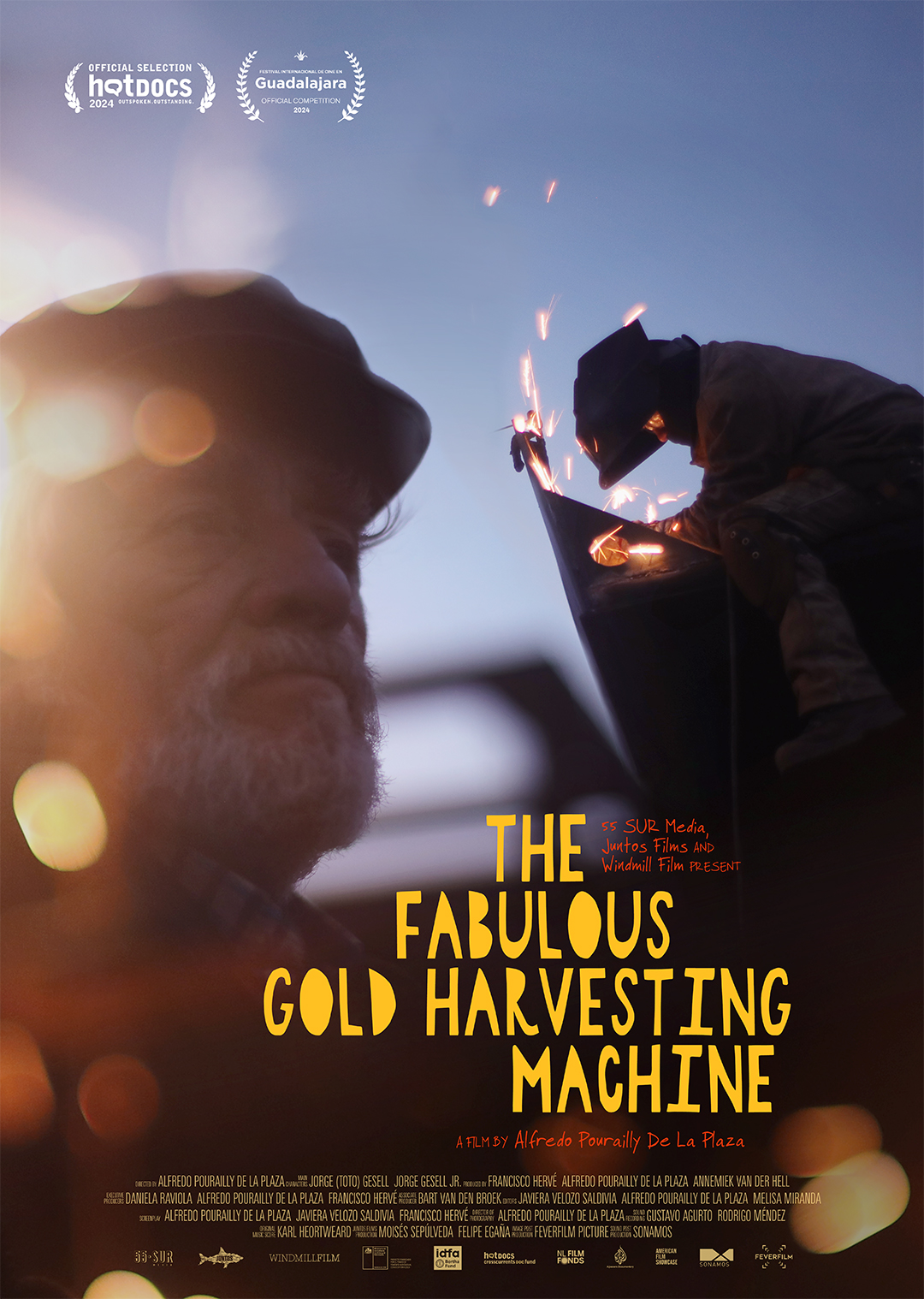
Tierra del Fuego is a remote island at the very south of Chilean Patagonia. The harsh weather has shaped a rough place to live in and the few constructions in the vastness of the landscape seem to exist out of time. Only 0,2 persons per square kilometer inhabit this land, one of the most isolated places in the world. One of these few inhabitants is Toto, a 60-year-old man who has worked more than 40 years digging for gold in the middle of the island hills. He is one of the last traditional gold diggers in Patagonia. Just by himself, he has spent more than half of his life searching for a fortune that has never come.
Toto’s daily life is hard: he works in his small open mine, breaking the rocks with his tools, getting hit by water, wind, and snow, while he looks for a few gold nuggets. His body is starting to feel tired, and 20 to 50 grams of gold per month just doesn’t seem to be enough anymore. But his eyes still shine every time he weighs them, those few grams that keep alive the hope for the freedom that he has always desired.
On his tiny shelter, where he lives next to the mine, Toto usually turns on the radio, just to feel accompanied, and listens to what happens hundreds and thousands of kilometers away. On the daily news that sound on the background, the Chilean national riots give Toto new hope about the possibility of better social conditions. Time is running out for Toto. His body is not the same anymore, and last year he suffered a serious stroke that led to brain surgery. He feels death is coming closer, but he doesn’t quit his job. He has no right to Social Security because he has not been able to give enough money to the private administrators, just like millions of other Chileans. For that reason, Toto will have to work until the last day of his life. Maybe this could be his last season in the mountains.
His son Jorge, a young 20-year-old cowboy, is becoming a man. He lives in Porvenir, the biggest town around, almost 30 kilometers from his father’s mine. He works driving a machine, building roads through this unconnected territory. In his free time, he likes to ride wild horses, and he is one of the best riders on the island. He risks his life in traditional extreme competitions. He knows his dad is aging, and after Toto’s stroke, Jorge decides to do something about his father’s future. He understands that Social Security in Chile is not a real thing, so his father will have no help after retirement. But Jorge comes up with a big idea. He will design and build a machine that will help Toto get the gold from the land in a more easy, mechanical way.
Jorge is not a designer, and he is not an engineer. He barely finished school. But he has determination. This crazy project becomes part of Jorge’s routine, and he spends most of his free time working on it. He wants to finish it as soon as possible, but he needs time and money to get this huge project done. So, in the meanwhile, Jorge works on road construction, just to earn enough money to buy the materials needed for the machine. The overall process is slower than expected, but they are moving forward. The machine will be finished one day.
Jorge also spends time with Toto, sometimes just hanging out, but most of it working, and trying to convince his father that he needs to take care of his health. He realizes his dad starts to get old, and they both share the fear of a near death and what happens afterwards. Anyway, Toto seems to be able to joke about it. Dying is over-rated.
The machine construction sets the timeline of the story. We will be with Toto and Jorge during this process, building their father and son relationship. Daily moments such as a lunch at Toto’s house, a simple conversation on the backyard, or both driving an old truck to bring firewood to the mine, will be essential to feel what it means to live at the end of the world and denied of a struggle-less future.
Toto will keep working on the mine, feeling the freedom he loves on each gold nugget he finds. His health will make him travel to the continent to see what doctors say about his situation. He should stop working, but everybody knows he can’t. Jorge will keep working on the machine until the end of winter, when they will both take their big crazy gold- digging thing to the hills of the island and, hopefully, begin a new future.
The film aims to be a cinematographic journey to open the doors of this intimate and fragile world which is filled with humor and rejects self-pity. It is a family love story that seeks to shed light on how the struggle against death is always better when it can be shared.
Director’s statement :
In the creative process of thinking about a film where the construction of a gold harvesting machine marked the timeline of the story, I discovered that what was fabulous was not the machine itself, but the fabulous story of Toto and Jorge, their strength and uniqueness. A point of view about life and how to overcome it. Where we understand that Toto is the real fabulous machine that harvests gold, or rather, the fabulous man who harvests gold. Where we discover an intimate and incredible family love story that shows us a shine of light in relation to facing problems with solidarity.
This film is the portrait of the relationship of two endearing and lovable people who through solidarity build a form of protection in order to continue to exist in a beautiful and exotic, but hostile environment.
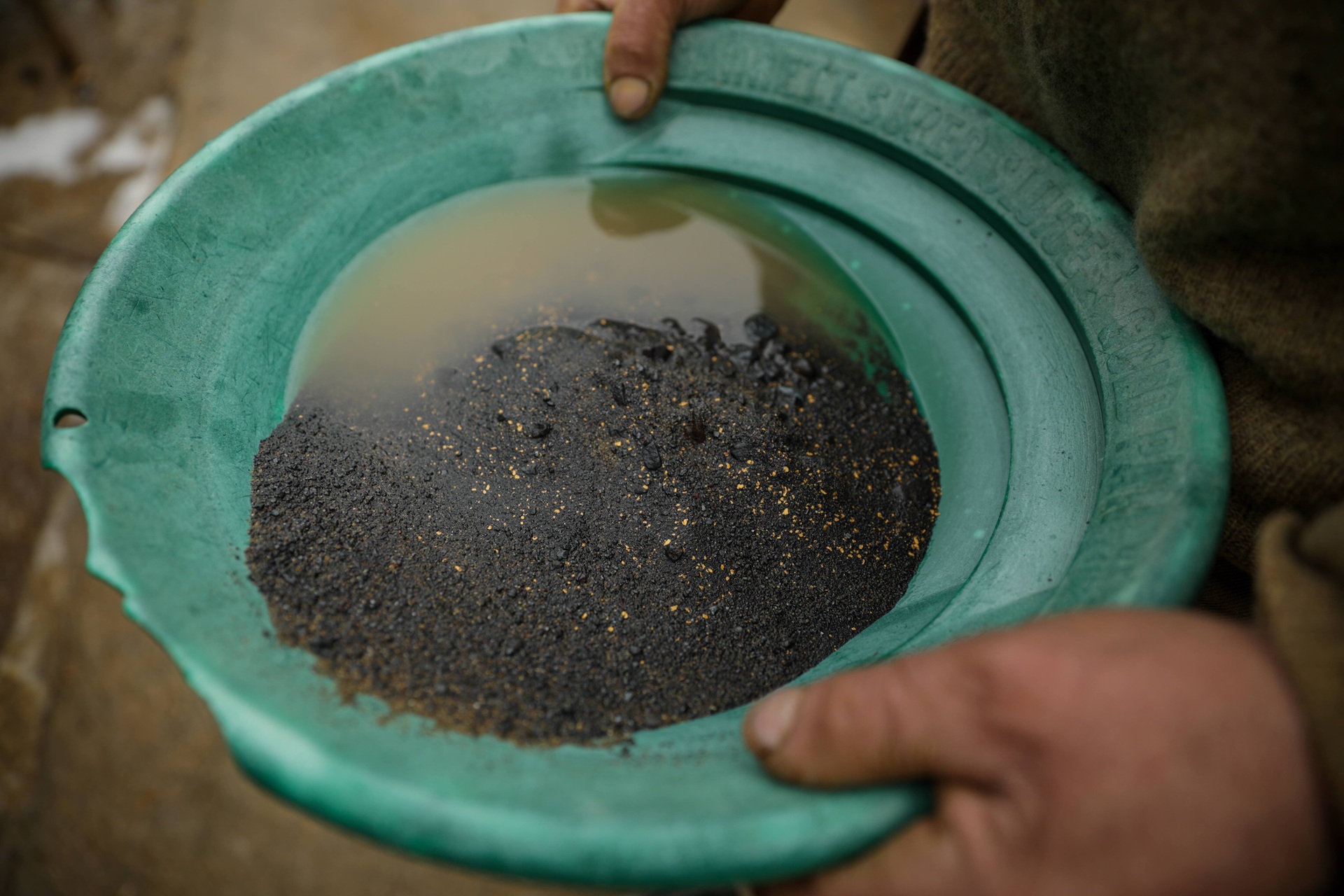
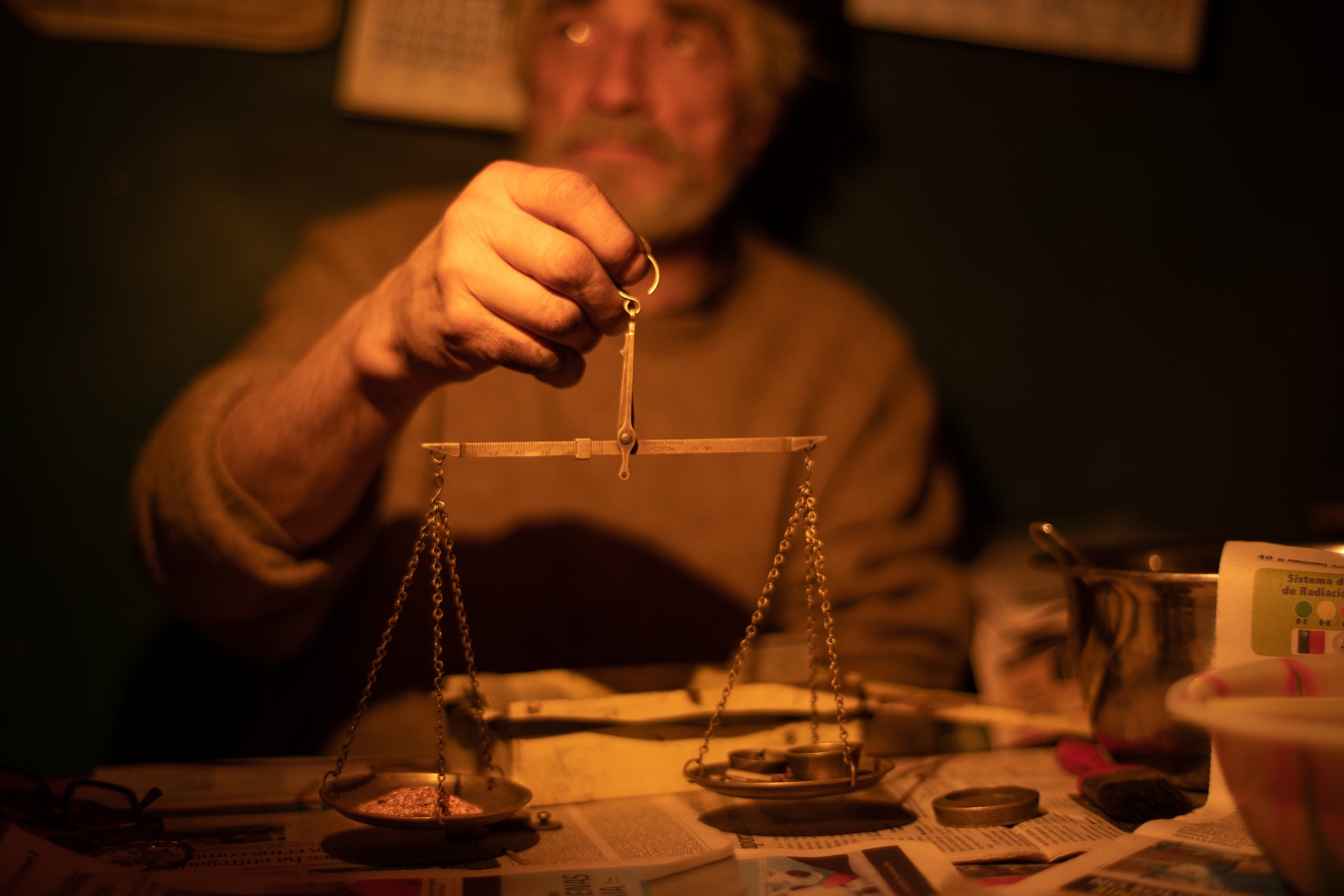
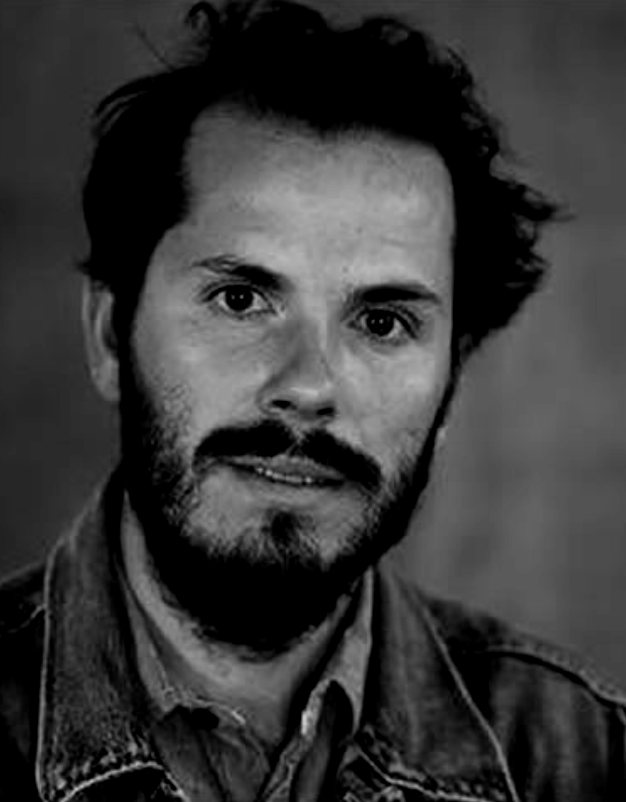
Alfredo Pourailly de la Plaza
Founder of the production company 55 Sur Media. Director and producer of documentary films, documentary photographer and master in Heritage. He currently works as producer and director of film, photography and cultural management projects that 55 Sur Media develops with the aim of safeguarding, enhancing and disseminating the cultural, historical and natural heritage of Chile.
He received a Master’s degree in World Heritage and Cultural Projects for Development from the University of Barcelona, the University of Torino and ITCILO. He is currently directing his debut documentary “La Fabulosa Máquina de Cosechar Oro” in co-production with Juntos Films, who has a World Premiere in Hot Docs International Competition 2024.

